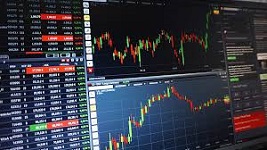By Justin Weinger – Anyone who lives in Africa and uses forex trading platforms regularly already knows how popular at-home work has become. In fact, the continuing COVID pandemic has had a lot to do with the increasing popularity of this activity. It seems almost illogical to say that a worldwide pandemic can lead to more active foreign exchange activity on the part of ordinary consumers. However, the facts are what they are.
Multiple factors have causes unlikely economic situations all over Africa. But particularly when it comes to individuals who trade international currency pairs from home, there has been a surge of interest. Why has the continent witnessed a virtual explosion of financial activity, and what does the future look like for Africa’s 50-plus nations as they move out of the COVID crisis and back into the mainstream financial world? Here are the most crucial components of the rising interest in home-based currency buying and selling for Africa’s millions of forex enthusiasts.
Economies are Opening Up Again and Currencies are Rebounding
The COVID pandemic is more than four months old and already beginning to slow. Even the hot-spot nations are experiencing fewer new cases and fewer overall deaths as the weeks progress. This is very good news for anyone who wants to take part in earning a living from home, in the financial markets. However, it is especially positive news for those who have already been considering the currency markets. Economies are getting stronger, leverage is high, currencies are returning to their pre-COVID strength, and it’s as easy as ever to open an account.
Firms are Beginning to Accept More Nations
Securities platforms and the brokerage firms associated with them are beginning to accept account-holders from more and more nations. Just a decade ago, it was common for residents of smaller nations to face many obstacles when attempting to open an account with a trading platform. That situation has changed as more and more African citizens are now opening their own accounts under a more inclusive membership policy.
Brokers Offer High Leverage
Unlike traditional broker-sponsored accounts, forex accounts offer high leverage for just about anyone. That fact alone has a massive impact on the kind of activity people choose. Logically, anyone striving to make a living will opt for the style of trading that offers them the most leverage, which can be as low as 30 times and all the way up to 3000 times the amount of the trade, depending on what a particular broker allows.
Everyone’s at Home, Whether They Like It or Not
Vast numbers of people are forced, by law, to remain inside their homes. One of the important, unexpected consequences of this lockdown policy has been an increase in home-based business activity, particularly online stock, options, forex, and futures buying and selling. Individuals who previously held jobs outside their homes are scrambling to figure out how to earn enough money to pay their bills.
For better or worse, large segments of the population have been pushed into creative earning methods, one of which is the buying and selling of securities, options, futures, and international currency pairs.
Africa’s New Traders are Ready to Learn
Unlike many business skills, it’s possible to learn forex trading completely online by following a few simple steps, having the requisite amount of perseverance, and being patient. The COVID-19 crisis in Africa led to a significant growth in the forex trading markets. Two factors come together for Africa-based traders that make the self-instruction process quite accessible: simulators and a relatively flat learning curve.
Most of the reputable brokers in Africa offer educational tools like books, quizzes, video tutorials about how to place orders, and access to full-scale trading simulators that help newcomers learn by buying and selling fictitious securities, bonds, and currencies. Anyone interested in delving into forex can get their feet wet by spending an hour or so per day on a simulator, commonly called a sim, which is a completely web-based program that requires no downloads or purchases.
Sims allow users to open accounts with fake money and begin trading based on real market prices, price changes, commissions, gains, losses, and everything else that actual trading entails. The big difference is that it’s all for the sale of learning, and no money is lost or gained. Even experienced traders return to the sim now and then when they want to sharpen their skills, have low account balances, or want to test out new theories and indicators.
Because so many at-home workers are already well-versed in business and financial markets, Africa’s new population of entrepreneurs, forced by COVID conditions to remain away from offices, are opening brokerage accounts and jumping into trading quite quickly.
EDITOR’S NOTE – The writer Justin Weinger is a married father of 3, with a keen interest in investing, early retirement, and all things personal finance.

